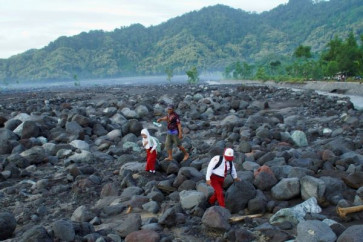Popular Reads
Top Results
Can't find what you're looking for?
View all search resultsPopular Reads
Top Results
Can't find what you're looking for?
View all search resultsThe case for investing in the demographic dividend
By borrowing more, the government can invest in projects to boost productivity and expand the economy.
Change text size
Gift Premium Articles
to Anyone
A
s president-elect Prabowo Subianto prepares to assume office, one significant policy decision that could define his administration is increasing Indonesia's debt-to-gross domestic product (GDP) ratio. Prabowo's administration should feel and say that there is no better investment than prudently investing in Indonesia's future. This is what great countries do, and Indonesia is a great country.
Although traditionally cautious about public debt, Indonesia now has a compelling case to strategically raise this ratio under Prabowo's leadership. Such a move, if managed carefully, can be transformative, drive economic growth, address infrastructure deficiencies and enhance the welfare of the country.
Increasing the debt-to-GDP ratio is a powerful lever for stimulating economic growth. By borrowing more, the government can invest in projects to boost productivity and expand the economy. This includes investments in infrastructure, education and health care, which are essential for long-term sustainable development. While private investment plays a role, public funding is crucial to kick-start and sustain large-scale projects.
This country's infrastructure needs are immense. According to the World Bank, hundreds of billions of dollars in investment are needed to upgrade our infrastructure to meet current and future demands. Infrastructure development is a critical area where increased borrowing can yield significant returns, enhance connectivity, reduce transportation costs and promote regional development.
Better roads, ports and airports facilitate trade and attract foreign direct investment, thereby driving economic growth. The multiplier effect of such investments can be substantial, as they not only create jobs during the construction phase, but also improve economic efficiency in the long run.
Increased borrowing will bolster Indonesia's economic resilience. By investing in critical infrastructure, the country can reduce its vulnerability to external shocks. For instance, improved transportation networks facilitate more efficient disaster response and recovery, while a diversified economy performs better against global commodity price and economic fluctuations.
Strategic investments can also support Indonesia's transition to a more sustainable economic model. This includes funding for renewable energy projects, climate adaptation measures and sustainable urban development. Such initiatives not only address environmental challenges, but also contribute to long-term economic stability and growth.



















